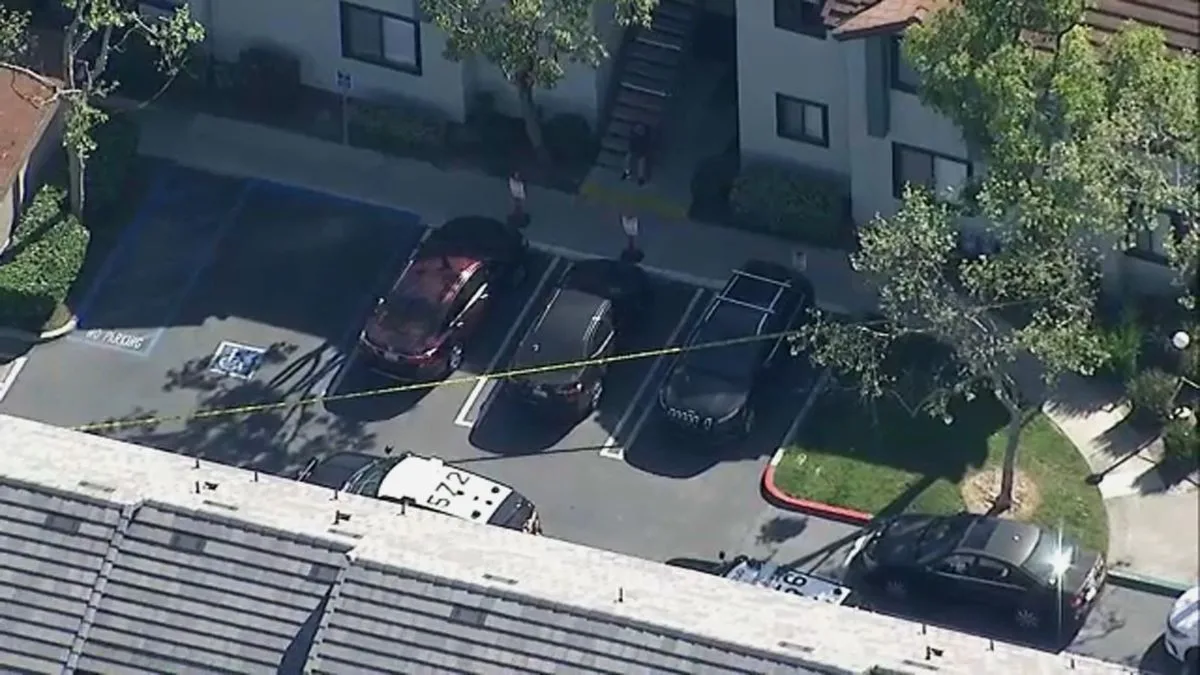MISSION VIEJO, Ca. (April 10, 2025): Shortly before 2 p.m., on April 9, Orange County Sheriff deputies were dispatched to the Mosaic Apartment Homes at 27444 Camden in the city of Mission Viejo, according to Mission Viejo Police Services.
A family member called after she found her 21-year-old brother, Cristopher Bahenabaylon, bleeding on the couch in their apartment. Deputies arrived and immediately rendered aid to the victim who was suffering from an apparent stab wound to his chest. Orange County Fire Authority arrived and pronounced Cristopher deceased.
Deputies established a perimeter and found physical evidence which led to the detention of a juvenile Hispanic male who lived in the same apartment complex.
OC Sheriff’s Homicide investigators responded and began their investigation.
Based on the interviews conducted by investigators and the evidence at the scene, the juvenile male was arrested and booked into the Orange County Juvenile Hall on suspicion of murder. No further information will be released at this time.
The investigation is ongoing.
Anyone with additional information is encouraged to call the Orange County Sheriff’s Department at (714) 647-7000. Anonymous tips can be sent to OC Crime Stoppers at 855-TIP-OCCS (855-847-6227) or at occrimestoppers.org.
In California, the penalties for a juvenile arrested for a fatal stabbing depend on several factors, including the juvenile’s age, criminal history, the circumstances of the crime, and whether the case is charged in juvenile court or transferred to adult court.
Here’s a general breakdown:
1. Age Matters
Under 14 years old: It is rare but possible for a child under 14 to be held responsible, especially for something as serious as a fatal stabbing. The prosecution must prove the minor understood the wrongfulness of their actions.
14 or older: A minor 14 or older can be tried as an adult for certain serious crimes, including murder or manslaughter, under Welfare & Institutions Code § 707(b).
2. If Tried in Juvenile Court
Juvenile courts focus on rehabilitation, not punishment.
If convicted of murder, the juvenile may be placed in a Division of Juvenile Justice (DJJ) facility (formerly CYA) until age 25.
Lesser charges (e.g., voluntary manslaughter) may result in shorter confinement or alternative placements (e.g., group homes, probation, treatment programs).
3. If Tried as an Adult
If the juvenile is transferred to adult court, they face the same potential penalties as adults:
Murder with special circumstances: Life in prison without the possibility of parole (LWOP) – not allowed for juveniles anymore after recent legal reforms (e.g., Senate Bill 394).
Murder (1st or 2nd degree):
Typically 25 years to life, but with the possibility of youth offender parole (usually after 25 years).
Manslaughter: 3, 6, or 11 years (depending on the degree and circumstances).
Recent Legal Reforms
SB 1391 (2019): Prevents 14- and 15-year-olds from being tried as adults in most cases — they must be kept in juvenile court, even for murder.
Youth Offender Parole: Gives juveniles sentenced as adults a chance at parole after 15–25 years, depending on their sentence.

So was he stabbed or was he shot…?
The police initially said it was a shooting